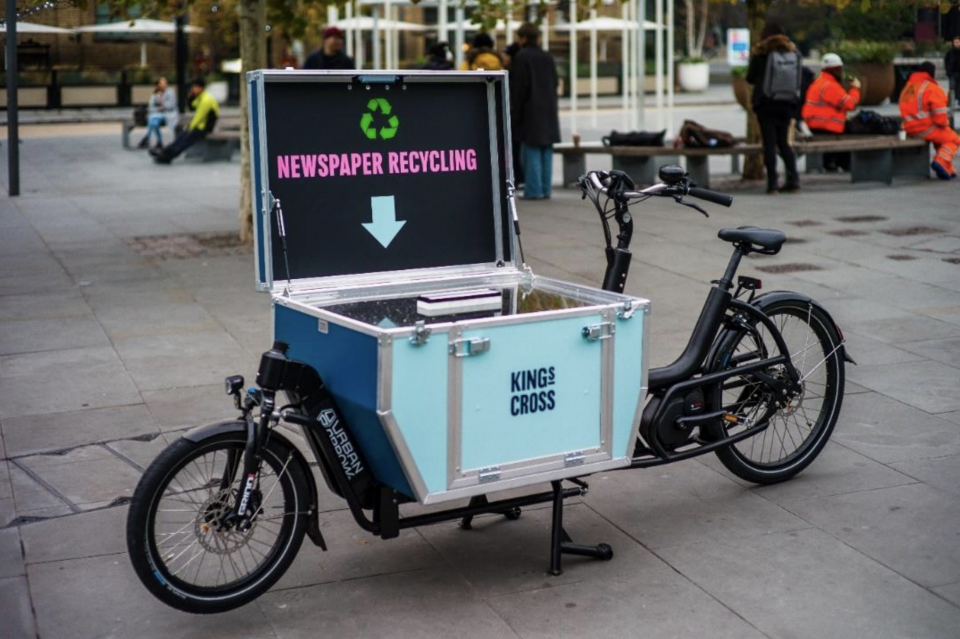Report offers advice for taking up last mile cycle logistics

A new report by the Cross River Partnership (CRP) gives advice to to local authorities on how to use cargo bikes in support of a green recovery in London, and other cities, as they emerge from lockdown.
The Covid-19 pandemic may change what we buy and where those goods come from. There could be a trend to more local sourcing or an acceleration towards more home delivery by vans, especially from supermarkets or restaurants. Some cargo bike operators are working with local groups to provide local assistance and may build a larger customer-base as a result, while others have closed down their operations entirely. History suggests that pricing and product choice may remain the key customer issues in the long term.
As well as recommending a coordination and integration of transport and land use policies and regulations to achieve maximum change, Cross River Partnership is keen to support its public and private sector partners to roll out last mile innovations in London, including Cargo bikes for servicing activity, exchange points for cargo bikes and/or porters; and a ‘white label’ cargo bike trial.
The above initiatives support the ambitions of the post-lockdown recovery to be clean and green not just for personal transport, but also for the delivery and servicing activity that London will continue to depend on.
Tom Linton-Smith, Project Manager at Cross River Partnership, said: “Cross River Partnership has a proud history of supporting low and zero-tailpipe emission freight transport solutions. Cargo bikes are part of the clean transport mix that is required to keep the city moving, building resilience as we deal with the challenges of economic recovery, congestion, air pollution and the climate emergency.
In this report we have exposed the challenges and suggested opportunities to work together in new ways to increase their use in London and other cities through knowledge sharing and collaboration.”
Read the full ‘Enabling Last Mile Cycling Logistics’ report here - produced by the CRP managed Central London Sub-Regional Transport Partnership.



